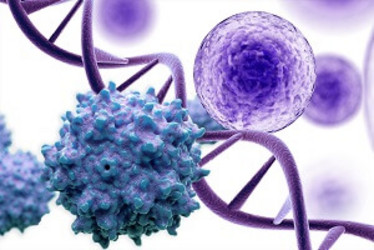Thank You, Single-Use Plastics
Amongst the global negativity towards plastics, we shouldn’t forget how single use plastics are saving lives
Kevin D. Ott | | Opinion

If you were to Google “single-use plastics” (SUPs), you could scroll through thousands of unflattering opinions about the dangers of our “global plastic addiction(s)” and the impact on the environment, wildlife, and human health. I don’t discount those concerns. But, lost in the chatter, is the fact that hundreds of polymeric products allow us to live safer, healthier, longer lives.
Nowhere is this more evident than in the critical use of single-use technologies (SUTs) in COVID-19 vaccine research, manufacture, and fill-finish operations – the myriad vaccine-development steps that precede injection, leading to immunization.
SUT manufacture employs multiple complex engineered plastic and silicone-based devices that are currently being deployed en masse to make large-molecule biologics, cell and gene therapies, and vaccines, such as those for COVID-19. SUTs have (almost) single-handedly turned the typical vaccine development timeline from nine years to nine months, allowing “warp speed” delivery of vaccines and vaccinations. Now, as we contemplate a need for 10-14 billion (yes, billion) doses of vaccine, conversations around safe, effective, fast, and flexible vaccine production – and the need for supporting polymeric devices – have become even more urgent.
SUT markets had been on an extended growth curve pre-pandemic. BPSA research indicates that, between 2016 and 2018, the annual growth rate for bioprocess SUTs (comprising bio-containers, mixing and transport bags, tube sets, filters, connectors, filter cartridges, filter media, sensors, and so on) was estimated to have been between 15-18 percent annually. Mid- and post-pandemic growth rates for SUTs will inevitably re-draw and steepen all previous SUT-shipment growth curves.
Today, however, the “anti-plastic” drumbeat continues – and has gone global. Bans on single-use consumer products have accelerated from local initiatives (grocery bag taxes) to regional and state regulations (sorting and recycling initiatives), but still failed to make a dent in the global issue. And now, activity has evolved to movements supporting “national ban” level measures. At the time of writing, the government of Canada is contemplating the declaration of plastic as a “toxic” material, proposing bans on straws, stir sticks, food containers, food packaging, six-pack rings, and plastics cutlery. Though these single-use “consumables” are items we can live without, the designation of plastics as “toxic” is unprecedented, and it unfairly portrays plastic as “problematic” with little context of the beneficial flip side, which encompasses a universe of good. All SUPs are not created equal but, unfortunately, public perception is pulling us in that direction.
Just as we have employed SUTs to beat back the SARS-CoV-2 virus with polymeric-based vaccine-manufacturing tools and technology, our SUP friends have been there too: ventilator tubes, BP cuffs, hoods, shoe covers, gowns, goggles, face shields, treatment tents, mattress covers, face masks, and blood and saline bags are all in the COVID-19 fray as frontline defense tools – and have saved lives. By design and definition, these “single-use” items ensure sterility and safety to patients and staff.
When it is your time to sit for a COVID-19 vaccine administered by a masked health care professional, remember to say, after the needle sinks into your arm, “Thank you. And thank you single-use plastics.”
Kevin Ott is Executive Director of the Bio-Process Systems Alliance (BPSA) and the Flexible Vinyl Alliance (FVA). Both are SOCMA Affiliates, based in Arlington, Virginia, USA. BPSA is the international industry association that represents the suppliers and users of single-use bio-processing systems (www.bpsalliance.org). FVA is a coalition representing the business interests of the flexible-PVC value chain (www.flexvinylalliance.com). Both organizations are SOCMA affiliates based near Washington, DC (www.socma.org).
Leverage Proven Technology to Speed Path to FIH

GPEx® Lightning is a fast, flexible way to shorten the path to production of phase 1 material. During this talk, we share the latest data leveraging GPEx® Lightning to generate highly stable, highly productive cell pools.



















